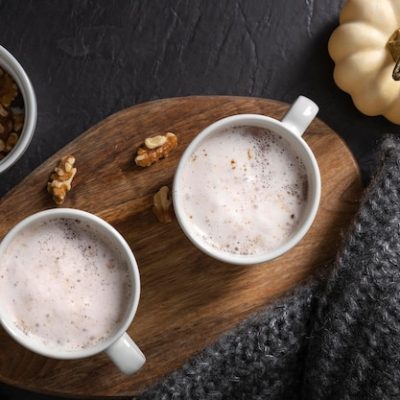Dry January has gained immense popularity in recent years, with many individuals choosing to abstain from alcohol for the entire month. This initiative aims to give your body a break from the excesses of the holiday season and kickstart healthier habits that can last throughout the year.
Beyond its obvious physical advantages—like reducing inflammation, easing liver strain, enhancing digestion, and boosting immunity—Dry January also offers significant mental health benefits. Just one month without alcohol can lead to increased energy, improved sleep patterns, and heightened productivity and focus. Many participants report feeling more mindful and reflective during their alcohol-free month.
If you’re seeking a way to refresh your lifestyle after the holidays, Dry January might be the perfect solution. It requires commitment and determination, but the rewards are worth it!
This post may contain affiliate links that help keep this content free. Please read our disclosure for more information.
Dry January is an excellent way to kick off the New Year with healthier habits and enhanced mental and physical well-being. During this month of abstaining from alcohol, individuals often notice significant improvements in their overall health.
It’s well-known that alcohol can impact your heart rate, even while you sleep. I’ve monitored this myself using Apple Watch apps that track how your body responds during sleep. These apps reveal heart rate fluctuations and other changes caused by drinking. I was surprised to discover that my sleeping heart rate can rise by as much as 20 beats per minute after consuming alcohol.
If you’re looking to boost your energy, cutting out alcohol might be the answer. Recent studies indicate that abstaining from drinking can actually enhance your energy levels, providing you with more stamina throughout the day. This extra energy can lead to better focus, increased productivity, and improved physical performance. So, if you’re feeling drained, consider eliminating alcohol from your routine and see how it benefits your overall health!
Want to lose weight? You might be surprised to find that cutting out alcohol could be your key to success! Research shows that abstaining from alcohol can lead to weight loss, as fewer drinks mean fewer empty calories. Additionally, quitting drinking can help reduce cravings for high-calorie snacks and unhealthy meals. In fact, abstaining from alcohol is part of our 21-Day Fat Loss Challenge, so why not tackle both at once?
Did you know that avoiding alcohol can lower your risk of health issues like high blood pressure and cancer? Studies have shown that reducing alcohol intake can decrease the likelihood of developing hypertension and certain types of cancer. Plus, quitting drinking can lower stress levels and improve sleep quality.
Reducing alcohol consumption can help you become more aware of your drinking habits. It allows you to focus on healthier activities and break free from old patterns, fostering new, healthier behaviors. Additionally, cutting back or eliminating alcohol can alleviate withdrawal symptoms such as anxiety, insomnia, and depression.
Abstaining from alcohol can reduce stress, enhance concentration and memory, and improve overall cognitive function. Since drinking is often linked to anxiety and depression, stopping alcohol consumption may help lift negative moods and boost mental health. Furthermore, for those struggling with addiction or substance abuse, avoiding alcohol can lessen cravings.
Quitting drinking gives you a chance to focus on healthier activities, break harmful patterns, and improve your overall mental well-being. It can also help you better understand your relationship with alcohol, enabling you to make informed choices about responsible consumption in the future. Taking a break from drinking can positively impact your mental health and help reset your relationship with alcohol for the long term.
To successfully complete Dry January 2023, planning and preparation are essential. Start by limiting your exposure to alcohol-focused events and social gatherings. If possible, find a supportive friend or group who also wants to participate in Dry January—having someone to share the journey with can be incredibly helpful!
Remember that drinking is a habit, so it’s crucial to stay mindful and recognize your triggers or cravings when they arise. Keep an alternative beverage on hand if you feel tempted, and don’t hesitate to excuse yourself from situations that feel overwhelming.
The effort will pay off: you’ll develop a healthier relationship with alcohol, gain more energy and clarity, and enjoy a happier, healthier body!
Abstaining from alcohol during Dry January can have a profound positive impact on mental health. Giving up alcohol reduces stress and anxiety, promotes better sleep, and increases focus and productivity. Additionally, not drinking can help individuals become more aware of their emotions and behaviors, leading to a greater understanding of how their thoughts and actions affect those around them. This mindfulness is a crucial step toward strengthening mental health.
Avoiding alcohol during Dry January can also yield numerous physical health benefits. By steering clear of alcohol, individuals not only lower their risk of diseases like liver cirrhosis but also experience immediate advantages. Not drinking helps maintain a healthy weight, improves cardiovascular health, and reduces inflammation in the body.
Alcohol can negatively affect fat burning and weight loss. It contains empty calories with no nutritional value, leading to an overall increase in calorie intake. It also slows metabolism, reducing the amount of fat burned by the body. Drinking can trigger cravings for unhealthy foods, further hindering weight loss efforts.
Abstaining from alcohol during Dry January can enhance the body’s ability to break down fat cells effectively, supporting fat burning and weight loss. All these factors make avoiding alcohol during Dry January an excellent choice for improving both mental and physical health!
Dry January is a fantastic opportunity to eliminate bad habits and replace them with healthier alternatives. Instead of drinking, consider picking up a new hobby or activity. Join a sports team or take a jog around your neighborhood. Try meditation or yoga to alleviate stress, and seek out healthier snacks to satisfy cravings.
Rewarding yourself for reaching daily goals can be motivating, whether it’s listening to music or enjoying an occasional treat. Replacing unhealthy habits with positive alternatives during Dry January doesn’t have to be dull—it might even lead you to discover activities you love that keep you feeling strong and energized!
During Dry January, there are plenty of non-alcoholic drinks to enjoy. Options include sparkling water with fresh fruit juice or herbs, Kombucha, virgin cocktails made with fresh juices and sparkling water, mocktails, and herbal teas. Most importantly, remember to drink plenty of water throughout the day to stay hydrated and promote overall health.
Dry January is the perfect time to start fresh and make lasting changes. Begin by creating a plan and setting realistic goals. Then, find ways to stay motivated throughout the month, such as tracking your progress, setting reminders, or joining a support group. Finally, be kind to yourself if you slip up—every day is a new chance to start again.
Making lasting improvements during Dry January is achievable with a bit of planning and effort!
Are you ready to elevate your health and fitness? The 21-Day Fat Loss Challenge is an incredible way to reach your health and fitness goals. Not only will you see a reduction in body fat, but you’ll also experience an overall boost in wellness. With this challenge, you can expect to shed excess weight while maximizing your energy levels and improving your mood.










